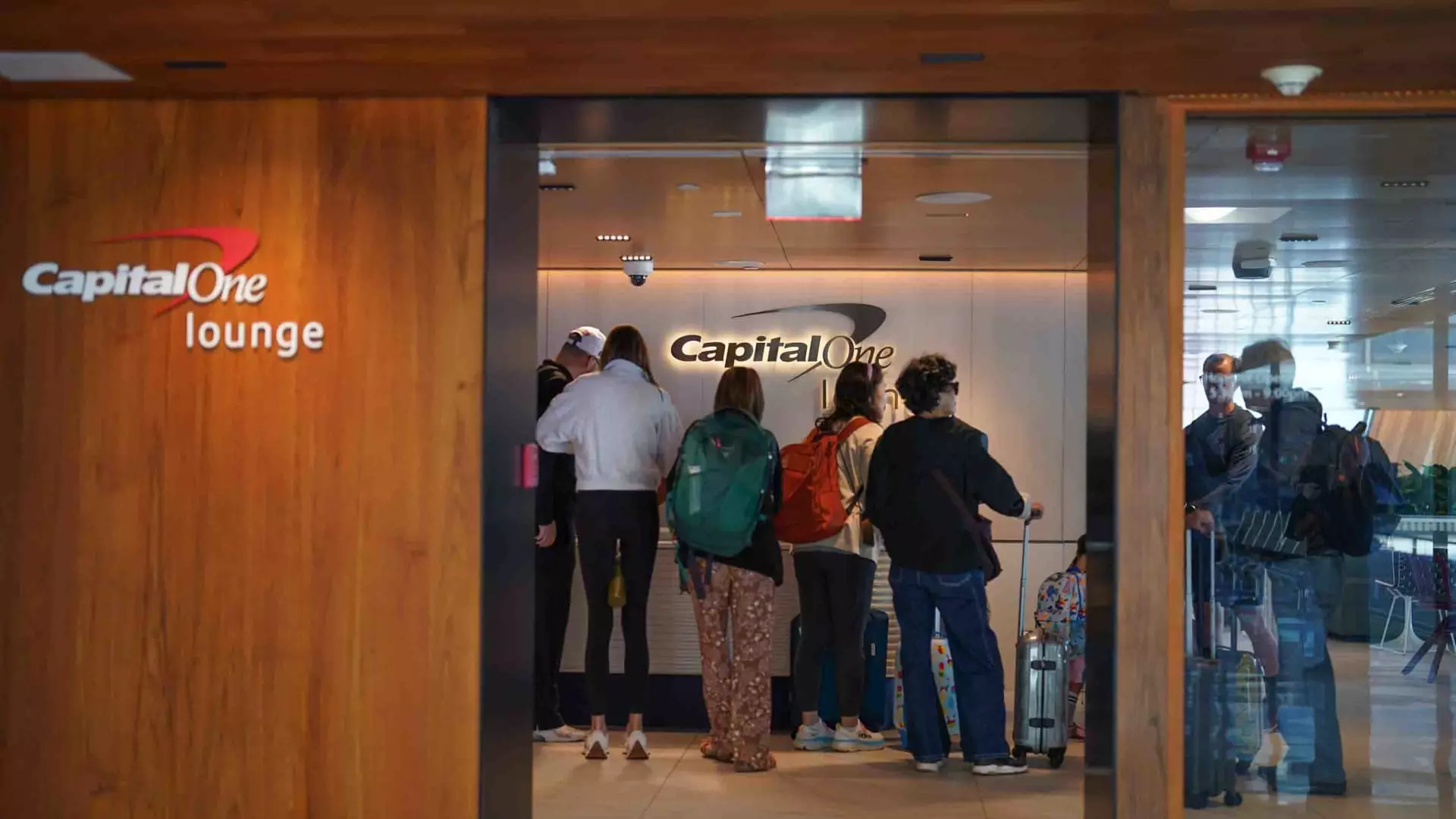Airport lounges have long been a symbol of travel luxury, a sanctuary for weary travelers seeking respite from the chaotic terminals. However, these havens of comfort are rapidly transforming into exclusive clubs, where even the affluent will need to empty their pockets further to enjoy a moment of tranquility. Capital One’s new restrictions exemplify this troubling trend, as the latest changes slash guest access and impose hefty fees. This pivot not only reveals a troubling shift in the travel experience but also raises questions about who can truly enjoy the benefits of air travel in an era defined by increasing accessibility juxtaposed with soaring costs.
Starting February 1, access to lounges for Venture X cardholders will be drastically limited. Until now, the privilege of sharing that experience with family or friends came as part of the package. As those who cherish shared moments of travel will feel an acute sense of loss, the imposition of fees—$125 annually for an additional cardholder and $45 for each guest visit—signals that the luxury of travel is being commodified to such an extent that it prioritizes profit over comfort. The $25 fee for children under 17 only further indicates that access is being meticulously calculated, transforming family travel into a financial puzzle.
A Dangerous Cycle of Exclusivity
With these newly introduced policies, it’s clear that Capital One is echoing practices already seen with giants like American Express. For the uninitiated, to bring two complimentary guests into their luxurious lounges, cardholders must shell out an astonishing $75,000 annually. This staggering figure not only alienates the typical family but also cements the idea that airport lounges have become the playground of the ultra-wealthy. It seems the allure of an airport lounge—once a beacon of moderate indulgence within the travel experience—is now fast becoming an unattainable luxury for many.
This approach elevates a troubling trend: lounges that once offered respite become either prohibitively expensive or overcrowded, leading to a paradox where lounges, aiming to provide comfort, inadvertently reinforce class divisions. Henry Harteveldt refers to Capital One as a “challenger brand,” yet their recent policies reflect a concession to the status quo rather than a bold stand against it. Instead of remaining a refreshing alternative for frequent fliers, they seem to fall in line with industry norms driven by exclusivity.
Trapped in a Cycle of Expense
The shift in lounge access paints a troubling landscape for aspiring travelers. While credit card companies tout the benefits of premium travel cards, the reality is that they are increasing fees while diminishing the perks that attracted customers to these products in the first place. This behavior mirrors larger societal trends where quality often suffers in the pursuit of profit, blurring the lines between affordability and accessibility.
Airline lounges, controlled by monolithic corporations, are increasingly restrictive, limiting visits and requiring significant spending thresholds merely for entry. Delta’s measures to shift from unlimited access to controlled caps highlight a broader industry trend that prioritizes profits over customer experience. As these measures roll out, the once-comforting cloud of privilege granted by credit cards morphs into a financial yoke burdening the average consumer, forcing them to question whether they should indulge at all.
Your Joy vs. Their Bottom Line
As the landscape of airport lounges shifts, one must ask: who truly benefits? These lavish lounges, designed to grant dignity and comfort, are being exploited to create an elite experience that draws an unappealing line in the sand. Instead of being welcoming sanctuaries for all travelers, they risk becoming walled gardens for the few. This evolution speaks volumes about the current state of consumerism in travel—a blend of luxury marketed to be accessible yet steeped in barriers that serve only the wealthiest travelers.
When an experience once thought for everyone becomes accessible only to those with the deepest pockets, we face a moment of reckoning. Is this the type of world we want to build, where only a privileged class can enjoy a brief escape from the stresses of travel? The evolving policies resulting from overcrowding reveal not just a logistical challenge but an ethical dilemma that requires introspection from consumers as they navigate this increasingly commercialized landscape of air travel.


Leave a Reply